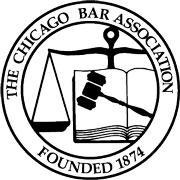Do Prisoners Have Civil Rights?
 Jails and prisons are designed to be unpleasant. They are punitive institutions, after all. However, just because you made a mistake and were sent to a correctional facility does not mean that you immediately lose all your rights. In the United States of America and in the state of Illinois, people confined in jails and prisons still enjoy certain constitutional protections. Being locked up may take away your freedom for the time being, but that does not mean you are entirely at the mercy of the guards. Treating prisoners in an abusive way or failing to meet their basic needs may amount to a civil rights violation that could be taken to court. If you believe that you or someone you care about has had their rights violated in jail or prison, speaking with an attorney should be your next step.
Jails and prisons are designed to be unpleasant. They are punitive institutions, after all. However, just because you made a mistake and were sent to a correctional facility does not mean that you immediately lose all your rights. In the United States of America and in the state of Illinois, people confined in jails and prisons still enjoy certain constitutional protections. Being locked up may take away your freedom for the time being, but that does not mean you are entirely at the mercy of the guards. Treating prisoners in an abusive way or failing to meet their basic needs may amount to a civil rights violation that could be taken to court. If you believe that you or someone you care about has had their rights violated in jail or prison, speaking with an attorney should be your next step.
What Rights Do People Have in Jails and Prisons?
The Eighth Amendment prohibits the use of cruel and unusual punishments.There are limits as to what means can be applied to punish criminals. Inmates check some, but not all, rights at the jailhouse door. Even if you are locked up, you still have these constitutional protections:
- Humane conditions - Even if you have been convicted of a crime, you are still entitled to be housed in humane conditions. Significantly unsanitary or overcrowded conditions can amount to a violation.
- Medical care - People in jail cannot leave to secure medical care for themselves. Prisons are charged with the care of their inmates, including necessary health care. Medical treatment inside may not be as good or as easily accessible as it is on the outside, but it must be adequate.
- Discrimination - Correctional facilities may not discriminate against inmates based on their membership in a class that enjoys constitutional protections anywhere else. This means that if you faced discrimination based on your race, religion, age, or other such protected traits.
- Complaints - Inmates have the right to lodge complaints about prison conditions without fear of retaliation. If you were punished for complaining, your rights could have been violated.
- Cruel and unusual punishment - The exact definition of what constitutes cruel and unusual punishment can be elusive. Cruel and unusual punishment is a rather broad category. Acts like beating a prisoner who is not resisting or using starvation as a means of discipline certainly meet the criteria. Unfortunately, these are common examples of Eighth Amendment violations rather than extreme cases, as one would hope.
Abuse of incarcerated persons is a serious issue, both in Chicago and across the nation. Guards may see inmates as easy victims with little recourse or believe that no one cares about the rights of prisoners enough to take action. However, there is recourse through the courts for inmate victims. Filing a civil rights claim can not only help you but also help other inmates who may suffer the same injustices you did.
Talk to a Chicago Civil Rights Lawyer
If you believe that your civil rights were violated while you were locked up, consider contacting Kadzai Law Group, LLC. Our Chicago’s South Side civil rights attorneys will take your case seriously and advocate for you. We offer free consultations. Call 312-229-0050 when you are ready to speak to a lawyer.
Source:
https://www.prisonlegalnews.org/news/2016/nov/14/primer-prisoners-constitutional-rights/















